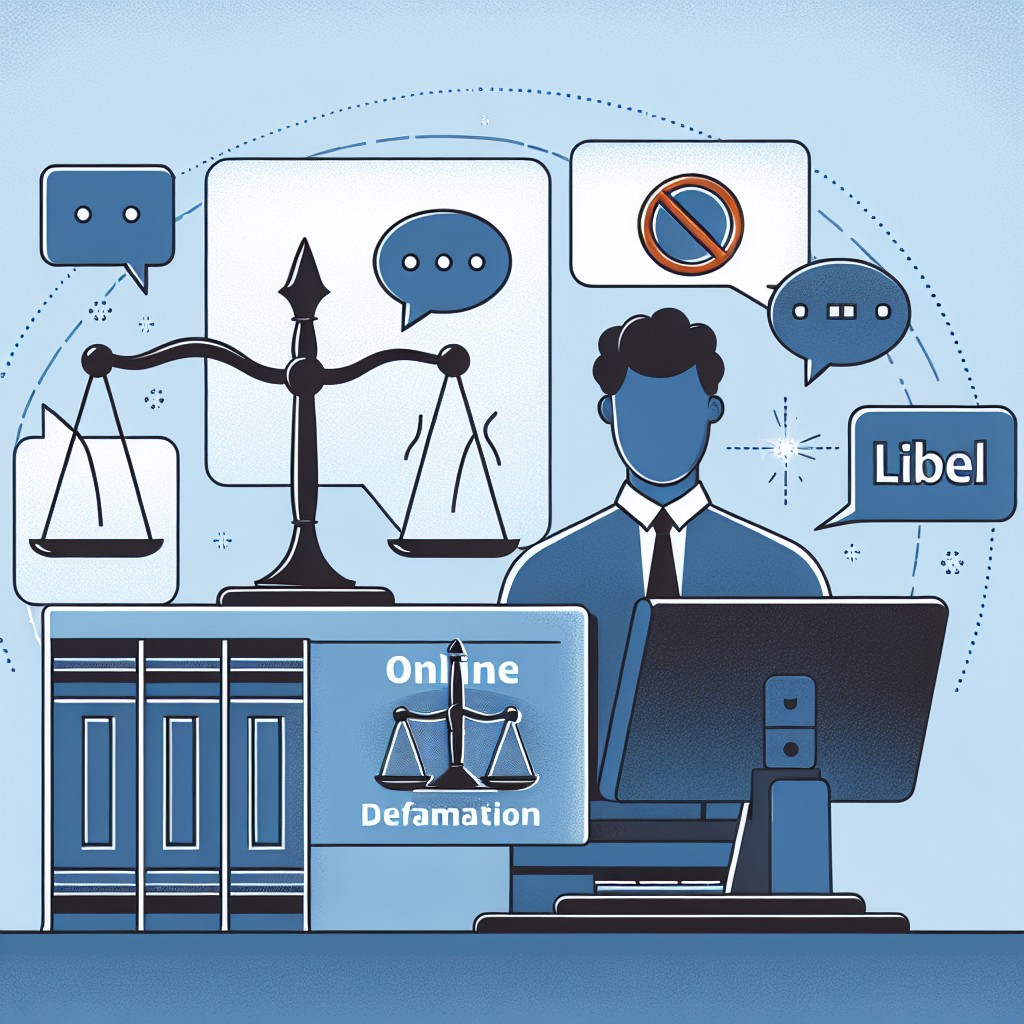In the age of the internet, where information can spread rapidly and reach a wide audience in a matter of seconds, the issue of online defamation and libel has become increasingly prevalent. Defamation refers to the act of making false statements about someone that harm their reputation, while libel specifically refers to the act of defaming someone through written or published statements. It is important to understand the laws regarding online defamation and libel in order to protect your reputation and seek legal recourse if necessary.
The legal standards for proving defamation vary from country to country, but generally, the following elements must be established: a false statement, published to a third party, that causes harm to the person's reputation. Online defamation can take various forms, including posts on social media, blog articles, comments on websites, or reviews on online platforms.
One important aspect to consider is the difference between opinion and fact. While individuals are entitled to express their opinions, stating false facts as if they were true can still be considered defamation. It is crucial to be mindful of this distinction when sharing information online.
In the United States, for example, the First Amendment provides strong protection for freedom of speech, making defamation cases challenging to pursue. However, certain conditions must be met to prove defamation, such as showing that the statement was false, made with knowledge of its falsity or with reckless disregard for the truth, and resulted in damages to the person's reputation.
To protect your reputation from online defamation, there are several steps you can take. Firstly, be cautious of what you share online. Think twice before posting anything that could potentially be untrue or harmful to someone's reputation. Additionally, consider privacy settings on social media platforms to control who can see your posts and limit the risk of your content being taken out of context.
If you become a victim of online defamation or libel, it is important to gather evidence of the false statements, including screenshots, web links, or other relevant documentation. Consult with an attorney who specializes in defamation law to evaluate the strength of your case and guide you through the legal process.
In some cases, it may be possible to resolve the issue outside of court through cease and desist letters or negotiation. However, if the defamatory statements persist and significant harm has been done to your reputation, pursuing a defamation lawsuit may be necessary.
It is worth noting that laws regarding online defamation and libel are continuously evolving as technology advances and new challenges arise. Therefore, staying informed about the current legal landscape and seeking professional legal advice is crucial for protecting your reputation in the digital age.

Published on August 6, 2023
Laws Regarding Online Defamation and Libel: Protecting Your Reputation
Share This Article
More Articles You Might Like
Discover More Content
Explore our collection of articles across various topics and categories. From cutting-edge technology insights to wellness wisdom, we curate the best stories to expand your horizons.
Article ID: 244